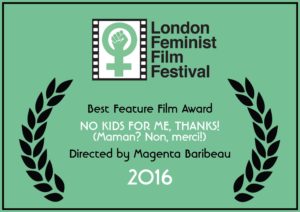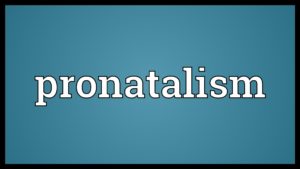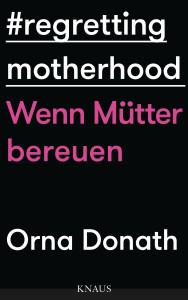At the beginning of 2016, I took stock of 40+ years of talking about the childfree choice. As we near the end of this year, I’d like to do the same just for this past year, and this time widen the discussion a bit. What positive trends have we seen this past year? Here are six:
Rise of Childfree Documentaries
In 2012, Laura Scott, author of Two is Enough, pioneered film discussion of the childfree choice and couples who make it in her documentary, The Childless by Choice Project. Since then, more films about the childfree have been released or are in the pipeline.
This year film, Maman? Non merci! (roughly translated as Being a mom? No thanks!) by the 2014 Childfree Woman of the Year, Magenta Baribeau, won the Best Feature Film Award at the London Feminist Film Festival! Check out the trailer Here.
In 2016, filmmaker Maxine Trump continued her work on the production of her documentary, Childless or Childfree? It’s Your Choice. Track her progress and get updates on the film Here. We hope to see a screening next year at the 2017 NotMom Summit, including interviews with attendees and presenters at the first Summit in 2015 (I was a presenter at the 2015 Summit and will be in 2017!).
Then there is filmmaker, Therese Shechter, who is currently in production for the documentary, My So-Called Selfish Life, which “focuses on how women who choose not to have children are creating their own culture and pushing back against a society that thinks they should really reproduce already.” Learn more about her film, and track its production progress Here.
In addition to the many books out there on the childfree, seeing more films taking on this subject is adding to the education of this choice and those who make it, and contributing to the evolution of its societal acceptance.
More Use of the Word, “Pronatalism” in the Media
Being the author of The Baby Matrix, which takes on pronatalism and its negative effects on society, seeing more use of this word and discussion of it makes me happy! From major media to blogs and more, here are just a few examples:
- Referred to in the first paragraph of this CNN article discussing research on the childfree decision (results of which are similar to what I found in my interviews for Families of Two): “The decisions behind remaining childfree”
- In the title and spoken to directly when discussing the impact Andrea Leadsom’s pronatalist comments about motherhood had on her political career
- Discussed directly on infertility blogs including what it is, and the influence of the media and government
- A worthy discussion by New Zealand’s Melisa Sinclair about getting beyond “childfree” verbiage and the need to “not rely so relentlessly on pronatalism”
Then there are a good number of writings that speak directly to pronatalism but don’t (and should!) use the word itself, like this smart article by Olivia Campbell, “The Century-Long Battle to Disprove the Myth That All Women Want Children.” In it Campbell talks about psychologist Lena Hollingsworth, who saw through the “social devices” of pronatalism, which I discuss at length in The Baby Matrix.
When it comes to the use of ‘pronatalism,’ when did I feel most thrilled this past year? When I saw scholar Michele Goodwin talking about pronatalism directly on the PBS show, To the Contrary. In the episode, “Trump vs. Clinton – Race, Gender & Politics; Pronatalism,” Goodwin talks about society’s continued “hyper-focus” on fulfilling the role of motherhood-her comments are not to be missed. Watch it Here.
More Talk about being Ambivalent and Undecided about Parenthood
This past year more forthcoming discussion about the making the parenthood decision, especially when it feels hard, has been out there, which is such a good thing. Just three examples include:
The Atlantic’s, “Deciding to Become a Parent or Not: Your Stories”
Glamour’s, “How to Figure Out Whether You Should Have Kids One Day”
Women.com’s, “I’m 30 And Don’t Know If I Want Kids”
More Talk about Regret
I feel this is one of the biggest positive trends in 2016. It is so important that real talk about parenthood become more commonplace, and not what pronatalism has dictated for years – that it’s taboo to say anything negative about the parenthood experience.
Pioneer in this area, Israeli scholar and author Orna Donath made waves upon the publishing of her book, Regretting Motherhood this year. We have also seen it discussed much more in the media. Just a few examples include:
BBC’s, “100 Women 2016: Parents who regret having children”
BBC’s, “Viewpoint: Changing the world is more important than changing nappies,” by French author and mother, Corrine Maier
“Inside the Growing Movement of Women Who Wish They’d Never Had Kids” by Sarah Treleaven, which appeared on MarieClaire.com and Elle.com
“I Don’t’ Like Being a Mother: Meet the woman who regrets having children… and thinks other women should think twice if they know what is good for themselves and the world” by Charlotte Burns on The Sun
A Lot More Talk about “Medical Paternalism”
This past year we have seen another positive trend – much more talk about the unfairness women experience when they want a sterilization procedure. The well-publicized story of Holly Brockwell finally winning her battle to become sterilized made many headlines, spurred lots of discussion, and she appeared in more media than anyone I have seen before who had experienced this discriminatory, yet common situation.

Holly Brockwell
Stories of medical paternalism made the Ted Talk world as well: Check out writer and social justice advocate Christen Reighter’s story and presentation at TEDxMileHighWomen Here.
We saw other writings on medical discrimination out there this year too; this one also includes other forms of discrimination the childfree can commonly face: “Silent Culture War: Exposing Discrimination Against Childfree People,” by Shannon Barber.
More Olive Branches between Moms and Non-Moms
Last year I talked about a trend of less adversarial tone between the mom and non-mom camps. In general I feel this has continued in 2016. We’ve seen a good number of pieces this year with the theme of understanding the other “camp,” as it were. One of my favorite articles by a mom about her non-mom friends was, “I Needed My Non-Mom Friends More Than Ever After Having Kids,” by Gemma Hartley.
When it comes to the childfree choice, overall it and those who make it continue to be more understood each year. In the big picture, this year, the trajectory of societal acceptance has continued to tick upward.
Here’s to more of this in 2017! How can you be part of it? Here are 3 childfree new year resolutions I wrote in 2012 that continue to be tangible things to do!






I’m looking forward to seeing those documentaries. I’m most excited about non-moms and moms communicating more effectively so I’m happy that’s on the upswing. It takes a lot of understanding and empathy from both sides for sure! Great post.
Yes, lots of good trends…hope to see Maxine’s film early in the new year, and the finished product at the 2017 NotMom Summit ~L
Add this article reporting YouGov survey results to the regret section above, as it adds a bit of an int’l component: “Why Do So Many Germans Regret Having Kids?” http://www.ozy.com/acumen/why-do-so-many-germans-regret-having-kids/74415